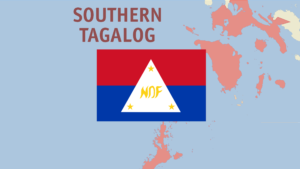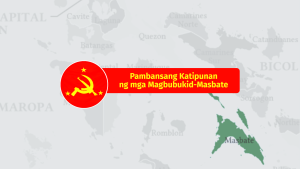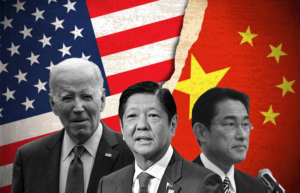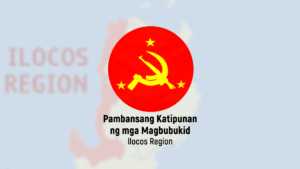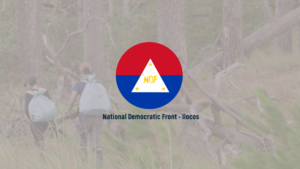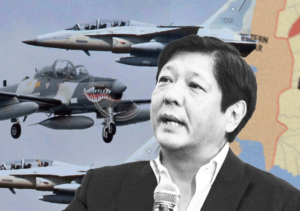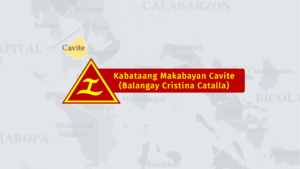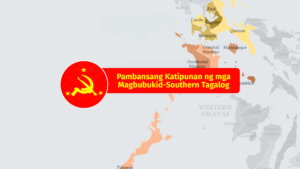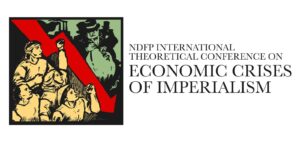On so-called local peace engagements: Like a cadaver the AFP keeps on resuscitating
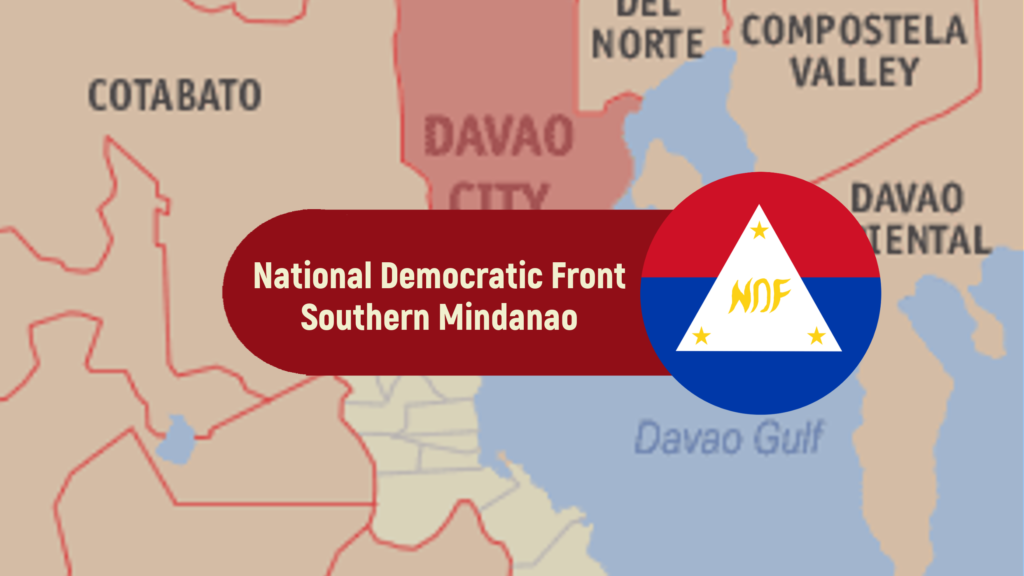
There is not, nor has there ever been, a single localized peace engagement between any local reactionary government unit, much less any AFP unit, and any organization or unit of the revolutionary movement in Southern Mindanao.
From the get-go when the previous US-Duterte regime dangled the idea of “localized peace talks,” the revolutionary movement in the region has consistently repudiated it as a bogus alternative to GRP-NDFP formal negotiations. It was a stillborn invention of Duterte and the Armed Forces of the Philippines’ National Task Force to End Local Communist Armed Conflict Armed Conflict (NTF-ELCAC).
In pushing yet again for the conduct of so-called local peace engagements, the AFP under the current illegitimate Marcos II regime is trying to resuscitate a cadaver, one that never even saw the light of day to begin with.
This is not to say that the militarist local reactionary political elite in the region, including then Davao City Mayor Sara Duterte-Carpio, and the fascist 10th Infantry Division and the Eastern Mindanao Command, did not conduct their own twisted version of “peace engagements.” What they called localized peace talks were actually surrender ceremonies of mostly unarmed residents and erstwhile New People’s Army fighters who have long ago left the armed struggle and been living as ordinary civilians.
Like in Davao City’s Peace 911, the peasants and Lumad were coerced to gather in mass meetings to force their “surrender” as NPA sympathizers. Over the last three years, the masses have reported that their demand for land, higher farmgate prices for their produce, livable wages, self-determination and other democratic interests were never discussed during these mass meetings. Instead, they were forced to identify other NPA sympathizers, locate hidden arms cache or subversive materials and convince their families and relatives whom the fascists suspected without proof to be active members of the NPA or other revolutionary organizations to likewise surrender. Worse, they were often times pitted against one another, causing distrust and animosity among residents in the communities.
These unarmed civilians were essentially held at gunpoint by fully-armed AFP troops with threats to their lives, livelihood and liberty. Cases such as the peasants and Lumad in Paquibato in Davao City and White Culaman in Kitaotao, Bukidnon are glaring instances of the extent of psywar and harassment that AFP units across the region have inflicted against civilians in order to create a sheen of legitimacy to these surrender ceremonies.
In other areas, communities that were supposedly beneficiaries of the NTF-ELCAC’s graft-laden Barangay Development Program had been enticed with token livelihood programs, which were tone-deaf to their actual and immediate needs. Others had been promised with infrastructure projects that only benefited the enterprises of local landlords and political overlords or else were already lined-up for implementation.
Agrarian reform beneficiaries in Davao del Norte and Davao de Oro, who for decades struggled against large banana plantations in order to till their own land, were instead given TESDA trainings, poultry or fishponds. Poor peasants in Davao City and Davao del Sur, who lost most of their incomes in the face of skyrocketing prices of farming inputs such as fertilizer and pesticides, were instead condescendingly given “trainings” for corn and vegetable production.
In short, these so-called “localized peace engagements” are nowhere near addressing the roots of the revolutionary armed struggle. The list of surrendered individuals that the AFP boasts is the fruit of such engagements was mostly achieved through psywar and suppression activities of the AFP in the countryside.
In truth, the current issue is nothing but a ruse, meant to ingratiate the embattled NTF-ELCAC with public opinion in order to save its evil existence, along with its billions of pesos in budget. More importantly, the Marcos II regime is desperately trying to buy the fickle loyalty of the AFP’s upper echelon, which has become used to the unprecedented political capital and financial legroom that it enjoyed during Duterte’s tyrannical reign.
Revolutionary forces in Southern Mindanao reiterate their continued support of the official peace negotiations between the NDFP and the GRP. Over three decades, the talks have made historic gains in getting the agenda of genuine land reform, national industrialization, human rights and other democratic interests of the Filipino people on the negotiating table. Before the war-mongering Duterte unceremoniously scrapped the talks in late 2017, both panels were already discussing socio-economic reforms. It was in fact the local reactionary ruling class of big landlords and bourgeois compradors in its desperate attempt to retain economic power that got in the way of the talks ever moving forward.
Alas, in insisting on the conduct of local peace engagements, especially in Southern Mindanao, the AFP is unwittingly admitting that its barely two month-old declaration that five out of the six provinces in the region were “insurgency-free” was in fact a pure and outright lie. Otherwise, who is there left to engage with?

